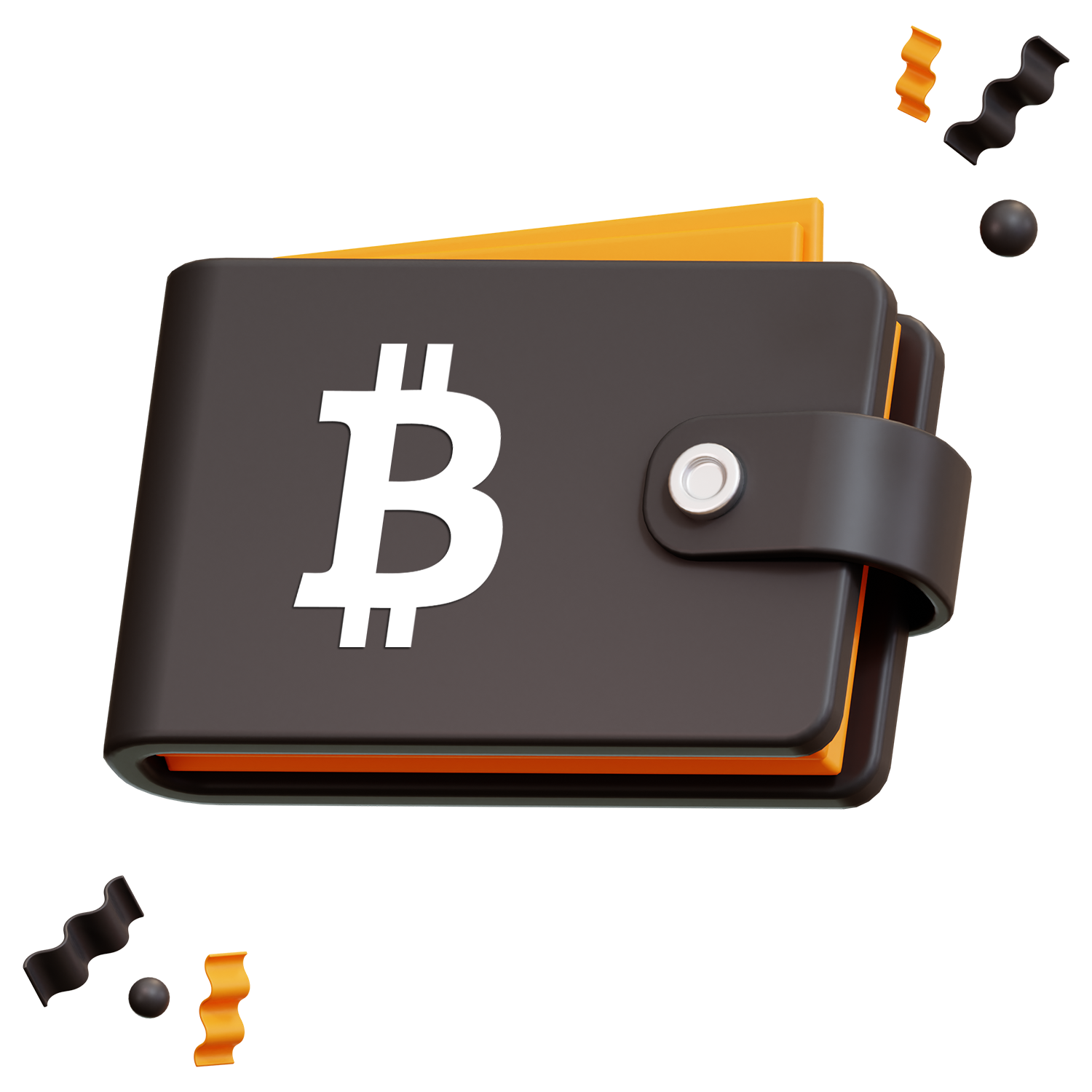We compare the best crypto wallets to secure your Bitcoin and other cryptocurrencies!
Best Crypto Wallet

Top 10 Best Crypto Wallets
What are the best crypto wallets ? Discover the ranking of the best cryptocurrency wallets to store your Bitcoins and cryptos safely !
1. KuCoin Wallet

- Type : 🔥 Hot wallet (Mobile, Desktop)
- Assets supported : 450,000+
- Price : Free download
Pros :
- Good for beginners
- Diverse choice of coins
- Easy Storage of NFTs
- Decentralized account
Cons :
- Limited payment methods
- Not licensed in the U.S.
1. Coinbase Wallet

- Type : 🔥 Hot wallet (Mobile, Desktop)
- Assets supported : 450,000+
- Price : Free download
Pros :
- Good for beginners
- Diverse choice of coins
- Sync directly to Coinbase exchange
- High security system
Cons :
- Higher fees
- Not available in all countries
- No DEX in the wallet (must be connected to an external exchange)
2. Electrum Crypto Wallet

- Type : 🔥 Hot wallet (Mobile, Desktop)
- Assets supported : BTC
- Price : Free download
Pros :
- Open source
- Offers 2-Factor Authentication
- Available on desktop and mobile platforms
Cons :
- Supports Bitcoin only
- Interface is unlikely to suit beginners
- No customer support
3. Exodus Crypto Wallet

- Type : 🔥 Hot wallet (Mobile, Desktop)
- Assets supported : 270+
- Price : Free download
Pros :
- User-friendly interface
- Supports wide range of cryptocurrencies
- Great 24/7 customer support
Cons :
- Not completely open source
- No 2-Factor Authentication
- Fees can be high
4. Trust Wallet

- Type : 🔥 Hot wallet (Mobile)
- Assets supported : 4,500,000+
- Price : Free download
Pros :
- Stake cryptos directly from your wallet
- Purchase cryptos with credit and debit card
- Supports Bitcoin transfers
- NFT support
Cons :
- No withdrawals to bank accounts
- No browser extension
- Built-in DEX only supports BSC assets
- NFTs only supported on Ethereum and BSC
5. Mycelium

- Type : 🔥 Hot wallet (Mobile)
- Assets supported : BTC & ETH
- Price : Free download
Pros :
- Open source
- Range of different accounts available
- Good security features
Cons :
- Stores Bitcoin only
- Limited customer support
- No desktop version
6. Trezor Model T

- Type : 🧊 Cold wallet (Hardware)
- Assets supported : 1,800+
- Price : $180
Pros :
- Easy to use
- Supports many coins and tokens
- User-friendly design
- Integration with MetaMask for additional usability and DeFi
- Highly customisable security features
Cons :
- No smartphone app
- No support for iOS
- Allows cryptocurrencies that can be purchased with fiat
- Higher price than other hardware wallets
No products found.
7. Ledger Nano X

- Type : 🧊 Cold wallet (Hardware)
- Assets supported : 5,500+
- Price : $80 – $149
Pros :
- Easy to set up and use
- Supports large digital assets
- Highly secure
- Mobile and desktop compatibility
- Nice and small design
Cons :
- No live customer service feature
- Higher price than other hardware wallets
No products found.
8. MetaMask Wallet

- Type : 🔥 Hot wallet (Mobile, Web browser)
- Assets supported : 500,000+
- Price : Free download
Pros :
- Easy to set up and install
- No personal identification required
- Supports multiple blockchains
Cons :
- No native Bitcoin support
- Limited technical support
9. Brave Wallet

- Type : 🔥 Hot wallet (Software)
- Assets supported : All ERC20 & EVM-compatible tokens
- Price : Free download
Pros :
- User-friendly interface
- Non-custodial wallet
- Built into the browser (No need to install an extension)
- Store your BAT tokens easily
Cons :
- Small number of DApps supported
- Doesn’t support the storage of Bitcoin
- Not possible to earn monthly BAT rewards
10. Zengo

- Type : 🔥 Hot wallet (Mobile)
- Assets supported : 70+
- Price : Free download
Pros :
- Simple user interface
- No need for private keys
- Three security factors (3FA)
- Strong customer service 24/7
Cons :
- Some features are not available in all locations
- Not fully non-custodial
- High minimum deposit ($85)
What Is A Crypto Wallet?
The crypto wallet is an app that stores your cryptographic keys. It’s the only means of accessing your funds without hacking into the company that holds them. It is a secure way of transactions because wallets give you complete control over who has access to your money and sustain network integrity.
Why Use A Crypto Wallet?
There are many reasons to use a crypto wallet, including:
- Speed – While a bank or bank account can take up to 7 business days to verify your credit patterns, Bitcoin transactions take as little as 10 minutes, meaning an average transaction is completed in one-tenth of the time it takes traditional banking methods.
- Security – Unlike Credit Cards, which are subject to fraud and the risks surrounding the processing of credit card transactions, digital wallets stores encrypted keys that act as a form of security. These keys are only available in digital format. The wallet owner has complete control over all transaction data.
- Privacy – The wallet owner has complete control and responsibility over their funds and accounts.
- Flexibility – With a crypto wallet, users can hold multiple currencies (BTC, DASH, LTC, etc.). They provide a means of storing and transferring funds without using fiat currency.
- Cost Effective – There is no need to pay for account setup or monthly fees as with traditional methods such as payment accounts, cheques, and bank transfers.
What Are The Types Of Cryptocurrency Wallets?
There are two main types of cryptocurrency wallets; hot wallets and cold storage wallets.
What Is The Difference Between Hot And Cold Wallet?
Hot wallets are stored in your browser or device and are connected to the internet, making them vulnerable to hackers and other threats. They are also susceptible to hardware failure: loss of internet connection, damaged hardware, etc. Because of this, hot wallets are used for small amounts of cryptocurrencies. If a large part is held within a hot wallet, it is strongly recommended that the user transfers their funds to cold storage.
On the other hand, cold storage wallets are held offline, which means they are disconnected from the internet, making them safer against hacking attacks and less likely to suffer hardware failure. To carry out a transaction, a person must have physical access to the cold storage wallet device. The downside is that funds may be inaccessible to their holder, such as a lost or damaged device.
Cold storage methods are divided into paper wallets and hardware devices. Paper wallets are optical media, files, or floppy disks where cryptocurrency private keys are stored offline. They include GPG and physical wallets made from metal or plastic and traditional printers. Hardware devices, meanwhile, can be anything from a USB stick, HDD, or micro SD card.
How Do Crypto Wallet Help Secure Cryptocurrencies?
Once a wallet is set up, and funds are loaded, wallets protect the keys with encryption algorithms and secure cold storage devices. Users must also activate 2-factor authentication on their wallets to avoid unauthorized access to their currency. In addition, users must keep their passwords safe: by storing them in a password manager or written down on paper.
How To Choose A Secure Crypto Wallet?
Search for a wallet that offers:
- Multiple layers of security – First, crypto wallets offer an additional layer of protection over traditional payment methods. They are just that; additional. It means they provide a different level of safety than cold storage wallets. But they still offer the user a higher level of protection than online banking and online shopping: money can be held by people, businesses, and governments without fear of being stolen. These are valuable aspects to consider when choosing a wallet.
- Tested security – Users should ensure that their wallets have robust security systems built into them. An excellent way to tell is whether the wallet protects its users from various attacks. For example, does it protect against viruses or hacking attempts? Does it keep users’ private keys safe?
- Integrations – When choosing a wallet, users should look for wallets that have been tested and have the security features required. Some wallets may offer more than one type of transaction, but they should only be available in a simple interface. Users must be able to access multiple functions at once to ensure they will carry out their transactions successfully.
Which Features Are The Most Important In The Crypto Wallet Comparison?
Security is an essential feature to consider when choosing a wallet. It means you should look for wallets with at least two forms of authentication, one of which must be a verification code received via text message or email. Users should also keep an eye out for extra security features, such as using 2FA alongside other security systems like password managers or GPG encryption.
How Does A Cryptocurrency Wallet Work?
The first step in using a crypto wallet is to create an account with it. It is accessed through any web browser or mobile app. Once the user has created an account, they will need to create a password backed up by either two-factor authentication or PGP encryption. The wallet will then load funds into their purse and send the user the address of their money to send funds from it. The user can then transfer the funds to a wallet of their choice and go on with their day.
How Much Does A Crypto Wallet Cost?
There is a wide range of wallets available for use. Some are free, some are paid, and others are paid monthly or annually. In most cases, however, users can use a free version of the wallet from which they can upgrade later if they wish. The cost of a crypto wallet can vary depending on usage, but it will typically cost users around USD 10 per year or less.
How To Protect Your Crypto Wallet?
Users need to take appropriate security measures to protect their crypto wallets. Security features include 2FA, PGP encryption, offline storage, and device safety measures. They should also use a password manager to help strengthen their passwords, keep them safe, and ensure that their private keys are stored safely in some form of cold storage.
